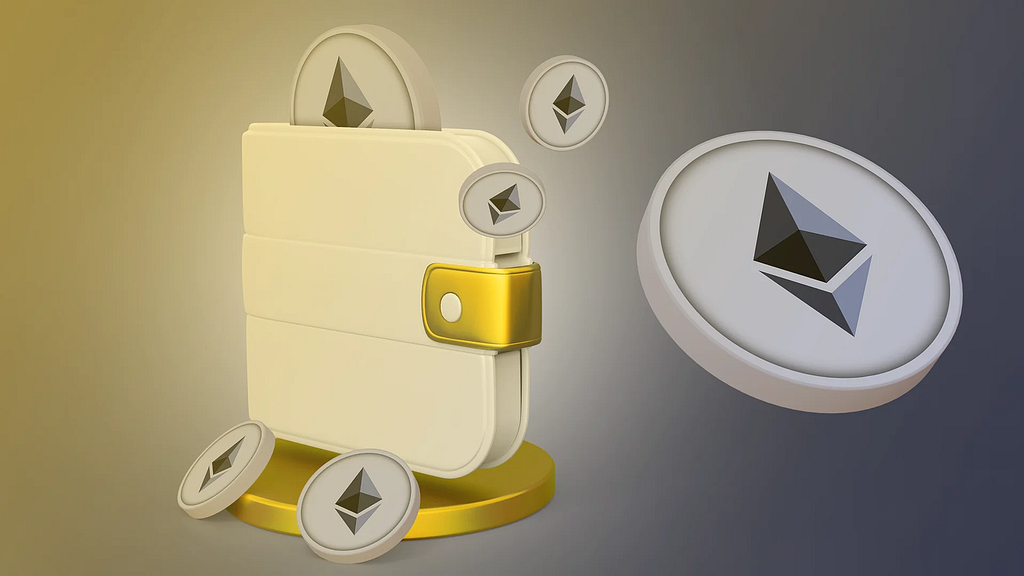
Ethereum, the second-largest cryptocurrency by market capitalization, has gained significant traction in recent years. As the Ethereum ecosystem continues to grow, the need for secure and user-friendly wallets and custody solutions has become increasingly important. In this blog post, we will explore the world of Ethereum wallets and custody solutions, helping you understand how they work and why they are essential for businesses and individuals alike.
What is an Ethereum Wallet?
An Ethereum wallet is a digital application or device that allows you to store, send, and receive Ether (ETH) and other Ethereum-based tokens. It serves as a gateway to the Ethereum blockchain, enabling users to interact with decentralized applications (dApps) and smart contracts.
Ethereum wallets come in various forms, including:
Software wallets: These are computer programs that run on desktops, laptops, or mobile devices. Examples include MetaMask, MyEtherWallet (MEW), and Exodus.
Hardware wallets: These are physical devices that store your private keys offline, making them more secure against hacking attempts. Popular hardware wallets include Ledger Nano S and Trezor.
Mobile wallets: These are lightweight applications designed for smartphones and tablets. Trust Wallet is a well-known mobile Ethereum wallet.
Web wallets: These are online services that allow you to access your Ether from any web browser. However, it’s important to choose a reputable and secure web wallet provider.
How do Ethereum Wallets Work?
Ethereum wallets use public-key cryptography to secure your funds. Each wallet has a unique public key, which serves as your wallet address, and a private key, which acts as a password to access your funds.
When you send Ether or tokens to another wallet, you need to provide the recipient’s public key. The transaction is then recorded on the Ethereum blockchain, and the funds are transferred to the specified address.
To send funds from your wallet, you need to use your private key to authorize the transaction. It’s crucial to keep your private key secure and never share it with anyone, as anyone with access to your private key can control your funds.
Ethereum Custody Solutions
As the Ethereum ecosystem grows, the need for secure custody solutions has become increasingly important, especially for businesses and institutions that hold large amounts of Ether or Ethereum-based tokens.
Custody solutions are services that provide secure storage and management of digital assets on behalf of clients. These solutions typically involve storing private keys in highly secure environments, such as offline storage or multi-signature wallets.
Some popular Ethereum custody solutions include:
BitGo: A leading provider of multi-signature wallets and custody services for digital assets.
Coinbase Custody: A secure and compliant custody service offered by Coinbase, one of the largest cryptocurrency exchanges.
Gemini Custody: A regulated custody solution provided by the Gemini cryptocurrency exchange.
Kingdom Trust: A qualified custodian that provides custody services for a wide range of digital assets, including Ethereum.
Benefits of Using Ethereum Wallets and Custody Solutions
Using Ethereum wallets and custody solutions offers several benefits:
1. Security: Wallets and custody solutions help protect your digital assets from theft, loss, or unauthorized access.
2. Accessibility: Many wallets and custody solutions offer user-friendly interfaces and mobile apps, making it easy to access your funds from anywhere.
3. Control: Non-custodial wallets give you complete control over your private keys and funds, allowing you to manage your assets according to your preferences.
4. Compliance: Regulated custody solutions help businesses and institutions meet regulatory requirements and mitigate legal and financial risks.
5. Interoperability: Some wallets and custody solutions support multiple cryptocurrencies and blockchains, allowing you to manage various digital assets from a single platform.
Must-Have Features in Crypto Wallets
As the cryptocurrency market continues to grow, having a reliable and efficient crypto wallet is essential for both individual users and businesses. A crypto wallet not only stores digital assets but also facilitates transactions and provides security features to protect against theft and fraud. Here are the must-have features that every high-performance crypto wallet should offer.
1. Robust Safety and Security Measures
Security is paramount in the world of cryptocurrencies. A high-quality crypto wallet must include:
- Two-Factor Authentication (2FA): This adds an extra layer of security by requiring a second form of verification, such as a text message or authentication app.
- Multi-Signature Support: This feature requires multiple approvals for transactions, making it harder for unauthorized users to access funds.
- End-to-End Encryption: Ensures that data is secure during transmission, protecting sensitive information from potential breaches.
- Biometric Authentication: Features like fingerprint or facial recognition provide additional security by ensuring that only authorized users can access the wallet.
2. User-Friendly Interface and Experience
A wallet’s usability is crucial, especially for beginners. Essential elements include:
- Intuitive Design: The interface should be clean and easy to navigate, allowing users to send or receive funds quickly.
- Quick Access to Features: Users should easily find options like transaction history, balance checks, and settings without confusion.
- QR Code Scanning: This feature simplifies transactions by allowing users to scan addresses instead of manually entering lengthy public keys.
3. Multi-Currency Support
As the cryptocurrency ecosystem expands beyond Bitcoin, a good wallet should support multiple currencies. This allows users to manage various assets from a single platform, which enhances convenience and reduces the need for multiple wallets.
4. Cold Storage Options
For those concerned about online security risks, cold storage options are essential. These include:
- Hardware Wallets: Physical devices that store private keys offline, providing robust protection against hacking.
- Paper Wallets: A low-tech solution where keys are printed on paper, keeping them safe from digital threats.
5. Backup and Recovery Options
A reliable wallet must provide backup features to prevent loss of access due to hardware failures or accidental deletions. Key aspects include:
- Seed Phrase Recovery: Users should receive a seed phrase during wallet setup that can be used to recover their funds if they lose access.
- Cloud Backup Options: Integration with secure cloud storage services can help users back up their wallets safely.
6. Transaction History and Portfolio Tracking
Users need to monitor their transactions effectively. A good crypto wallet should offer:
- Detailed Transaction History: Users should be able to view past transactions with timestamps, amounts, and recipient addresses.
- Portfolio Overview: A dashboard displaying total holdings, current values, and performance metrics helps users track their investments easily.
7. Integration with Decentralized Applications (dApps)
As decentralized finance (DeFi) grows, wallets must allow users to interact with dApps directly. This includes:
- Easy Access to DeFi Platforms: Users should be able to lend, borrow, or trade directly from their wallets without needing third-party services.
- Support for Smart Contracts: The ability to execute smart contracts securely enhances the functionality of the wallet.
8. Fast Transaction Processing
Speed is crucial in cryptocurrency transactions. A high-performance wallet should offer:
- Efficient Blockchain Solutions: The wallet should utilize fast blockchain technology to ensure quick transaction confirmations.
- Push Notifications: Real-time alerts about transaction statuses keep users informed about their activities.
9. Customer Support
Good customer support can make a significant difference when issues arise. Essential features include:
- 24/7 Availability: Access to support at any time helps resolve issues quickly.
- Comprehensive Help Resources: Tutorials, FAQs, and community forums can assist users in navigating the wallet’s features.
10. Customization Options
Finally, customization can enhance user experience by allowing individuals to tailor the wallet according to their preferences:
- Customizable Dashboards: Users can arrange their dashboard for quick access to frequently used features.
- Notification Settings: Users should have control over what notifications they receive regarding transactions or market changes.
Choosing the Right Ethereum Wallet or Custody Solution
When selecting an Ethereum wallet or custody solution, consider factors such as security, user experience, supported features, and compatibility with your specific needs. It’s also important to research the provider’s reputation, track record, and regulatory compliance.
If you’re a business looking for an Ethereum development company to help you choose and implement the right wallet or custody solution, consider working with Codezeros. Our team of experienced Ethereum developers can guide you through the process and help you build secure and scalable solutions tailored to your requirements.
Conclusion
Ethereum wallets and custody solutions are essential components of the Ethereum ecosystem, providing secure storage and management of digital assets. By understanding how they work and the benefits they offer, businesses and individuals can make informed decisions about their Ethereum holdings and participate in the growing decentralized finance (DeFi) landscape.
To learn more about Ethereum Wallet development and how Codezeros can help your business succeed in the world of blockchain, get in touch with us.
Ethereum Wallets and Custody Solutions Explained was originally published in Coinmonks on Medium, where people are continuing the conversation by highlighting and responding to this story.








